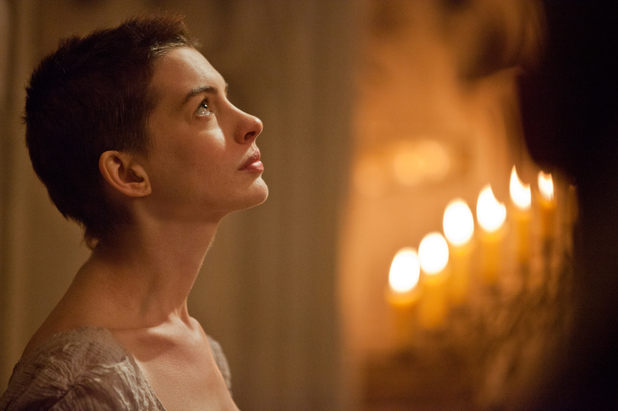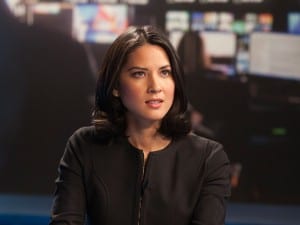
I was a weird kid.
Being a weird kid, I didn’t really enjoy summer vacations. I’m not saying I loved school, but I was good at it. School provided at least some reassurance that I had talents and abilities, and it provided the illusion of a social life. Even if I had little going on in my own life, there was so much activity surrounding me it was easy to pretend I was a part of it.
Summers were different. There were so many days where there was just nothing going on, or at least nothing going on for me. Sometimes there’d be a pickup baseball game to play in, or I could convince Greg Annan to play tennis, but a lot of days people were off doing their own things. People went on vacation, went to camp, were hanging out with their cooler friends, what have you.
As for my family, I was the weird one there too. They did a lot of summery things that I wasn’t really keen on. They spent seemingly every day at the beach or at Six Flags or going to swim in my aunt’s pool. I hate the beach, can’t stand amusement parks (I’m terrified of roller coasters) and I never really felt like going over to my aunt’s. My nana lived downstairs in my basement, which meant there was just enough adult supervision for my parents to feel comfortable leaving me alone in the house. They’d leave some money by the phone before they left in case they were late coming back and I needed to call and order food for Nana and me.
Some days I would be so bored I felt like I would go out of my mind. There’s really nothing on television during the day. Sometimes I would even sit and listen to Mike and the Mad Dog on the radio.
I had this pitch-back contraption set up in my backyard. It was a black metal frame with a high-tension net strung on it, and in the middle there was a rectangle outlined in white tape to represent the typical strike zone for a man of average height. When I’d given up on the idea that one of my friends might call to say there was a ball game that day, I’d take my glove, a ball, and my portable radio (for Mike and the Mad Dog) out to the backyard and play catch with myself.
Yes, that’s right. I was such a lonely child that I would spend an hour or two just throwing a ball at a net and trying to catch the ball when it bounced back to me. If I threw too low the ball would sail over my head and roll under the hedges by the neighbor’s yard. Too high and it might be a slow grounder that rolled to a halt well before my position. Hit the frame, or worse, miss the thing altogether, and I’d have to go running after the ball like an idiot.
The summer after seventh grade was right around the time I was becoming certain that I had no future whatsoever in athletics. That year in Little League I had hit for an average of .059, which represent one hit in seventeen at-bats. My on-base percentage was considerably higher, since a reluctance to swing, combined with the unreliability of twelve-year-old pitching, meant I walked more than you might expect. I also wasn’t all that afraid of being hit with the ball anymore, and reached base that way a number of times. My teammates didn’t really appreciate this, though. I was so slow on the base-paths that I think they’d have rather had me strike out. Batting last in the order, I often preceded the lead-off hitter, our best player and the coach’s son. Quite often I would be on first when he crushed one to the farthest reaches of the outfield, only to be limited to a single or maybe a double because of my sluggishness.
The problem at the plate was that my eyesight is not very strong, even with the assistance of glasses. Often I would not play with my glasses, because I was preternaturally concerned with a fastball breaking them and sending shards into my eyeballs. So instead I would flail, nearly blindly, at pitches as they sailed somewhere in the vicinity of the strike zone.
During the season I was determined to try my hand at pitching. I thought it might be a better way to contribute to the team’s success. There was no reason for me to feel this way, except that I had to better at it than I was at hitting. So I talked the coach into letting me practice pitching, and eventually he promised that he would use me on the mound at some point.
I got my shot in a game against the Orioles which we were losing by about 15 runs. I was facing the heart of the order, which included two of my friends from school. Jimmy Ascolese and Jon Harrison were two of the tallest kids in school, and the most athletic. During the warm up pitches the Orioles were openly laughing at how slow I was throwing. But when Jimmy stepped up to the plate he swung too hard at the first pitch and missed it badly. The next few pitches he fouled off, but then I threw one even slower (not intentionally, I was tiring quickly) and he swung too hard again and struck out. Jon did just about the same thing, and third kid popped out to first base. I was ecstatic, but my coach wasn’t. He told me that once the other team timed it right they’d slaughter me.
So that summer I was facing the end of my career in baseball. I couldn’t hit, couldn’t run, and couldn’t throw hard enough to make it as a pitcher. But I knew enough of baseball to know that there was one avenue left. I had just one chance left, one last potential path to athletic glory: the knuckleball.
The knuckleball is a curiosity more than anything else. It has a bad reputation. The ball is gripped by the fingernails, actually, and thrown with a motion similar to that or someone tossing a paper airplane. The point of this is to get the ball to travel with as little rotation as possible. For whatever reason, (something to do with the motion of air around the seams) this lack of spin causes the baseball to travel in a disjointed, jumpy path from mound to home plate. The batter can’t tell where the ball is going to go, and thus has trouble making contact with it. On the other hand, the pitcher and catcher often don’t know where it will go either, making walks, passed balls and wild pitches more prevalent.
Anyway, knuckleball pitchers are a more random collection of men than the rest of baseball. Since it has less to do with brute strength, many were not in particularly good shape. Indeed a lot of them resembled darts champions rather than professional athletes. So I thought maybe I could join their fraternity.
So instead of my normal games of catch, I turned my sessions with the pitch-back into a simulated game. I was on the mound, throwing nothing but knuckleballs, and the batter never swung. If I hit the strike zone, he’d be out, if I didn’t, he’d walk. I wasn’t keeping score or keeping track of my statistics, and thank goodness for that. The results would have been distressing.
One of the first adaptations I made to my routine was to bring more than one baseball outside with me every day. Otherwise I’d spend too much of my time chasing after the ones that completely missed the frame. So I’d bring out five or six balls and scatter them about on the ground near my feet. When I sent one sailing over the bar or way off to one side or the other, I’d just scoop down and pick myself a new one. Until, of course, they would all be on the other side of the frame, and I’d have to go and collect them all, like herding disobedient sheep.
The ones that did hit the frame tended to sink toward the end of their flight and just nick the netting on their way to the ground. They hit with such little velocity that they just took a dead-cat bounce and rolled a bit, making them little better than the ones that missed entirely. Still, I had nothing better to do, and I was determined to take this seriously. I loved baseball, and I was going to give every last shot.
The whole time the radio was on. Baseball was the only sport in action, and the Yankees and Mets dominated the conversation, which was just fine with me. The Yankees were having one of the best seasons in baseball history, and since there the media respond more to conflict, Mike and the Mad Dog would talk a lot more about the Mets, who were frustratingly close to actually contending for the first time that decade. When they won, the hosts and the callers would argue over whether they were for real, whether they could keep it up through September and get into the playoffs. When they lost, it was taken as a sign that their true colors were showing through, that Valentine still didn’t know how to manage the bullpen, that they didn’t have enough to beat the Braves.
Sometimes the Mets would play a day game on a Thursday afternoon, and that would be nice, to hear the thing itself instead of the uproar it created.
Somewhere near the Fourth of July, the quality of the radio show took a real dip in quality. Mike and the Mad Dog started alternating vacation weeks, and the show wasn’t the same when one of them wasn’t there. The back-and-forth between the hyper-energetic Mad Dog, and the slow-but-steady Mike Francesa was what made the show worth tuning into.
No one knew what I was up to in the backyard. Nana’s room only had windows facing the front yard, and I would always stop my sessions before my family returned from their outings. When I played baseball at the park with my friends, I never told them about the knuckleball or how it was going, I was just a rightfielder who had trouble judging fly balls and an indifferent hitter with a curious habit of always hitting the ball to the opposite field.
Like all pickup baseball games, our affairs were contentious and arguments were to be expected. Most games ended not with a final out or a dramatic run being scored, but with a fight between the teams over a close play, or a kid deciding he’d had enough and going home, leaving us without enough players.
The arguments typically started before the game itself. Depending on the number of players, we always had to hash out the very rules under which we were about to play. We rarely had a full complement of 18, so some compromising on positions was necessary. Typically we would forego catchers, since without the equipment that position becomes so potentially injurious that no one really ever volunteers.
Without a catcher, the pitcher was placed under a set of restrictions. The pitcher wasn’t allowed to throw it as fast as he could, because there was no one there to catch it if the batter refused to swing. There was just a tree in the way of a backstop, so if you threw a wild one it might roll into the street, delaying the game.
The other arguments were provoked by the dimensions of the playing field. The local park was a small affair, designed mostly for mothers to bring their small children. There were two wide open grass areas, but the larger one was too close to the swingsets and the jungle gym and the slide, and if we tried to play there the moms would yell at us for endangering their precious offspring.
So we were forced to make do with the smaller field. In left-field the gate around the tennis courts made for a fine fence, comparable to the Green Monster at Fenway. It was not that far away from home plate, but its height made up for that. Still, there were some who argued that a ball hit over it should not be a home run. This came up every time, and we never ever settled on one system. If there was no tennis game going on, sometimes we would let the team play an outfielder inside the courts, and if he caught it the batter would be out, but if he couldn’t it would be a home run. If there was a tennis game in progress, we were afraid of people complaining to the Parks Department about our games, so hitting the ball over the short fence was an out, which was meant to keep people from trying to do it.
There was no fence in right-field which is where I usually hit the ball. That meant there was really no way to hit a home run in that direction.
Near the end of summer I had got my knuckleball to the point where it would hit inside the frame on a consistent basis. It still wasn’t dipping and diving the way a traditional, successful knuckleball is supposed to. Even with good eyesight, I’d imagine it would have been difficult for me to judge how much the ball was rotating on its way to the target. So I decided the only true test was to take it out for a spin in a real game.
It wouldn’t be too difficult to get my friends to let me pitch. Because you weren’t allowed to throw hard, pitching was kind of a boring thing to do. You pretty much had to lay it in there and let the other guy hit it. Letting people wail on your pitches isn’t exactly an ego boost.
So one day in late-August, when you could have counted the days left until school started on just your fingers, I decided to make my debut as a knuckleballer. I didn’t want to start the game, but after a few innings and with my team up a couple of runs I volunteered to give the guy on the mound a break. He eagerly trotted to my post in the outfield, and I took the mound.
The first batter was a kid whose name I can’t even remember. He was two years younger than I was, which meant he’d be starting the sixth grade that fall. I can still see him stepping in at the plate. He was a short, scrawny kid, probably under five feet tall and weighing less than a hundred pounds. He had a short buzzcut which looked like he’d been forced into by a recent bout of lice. The bat’s length was probably more than half his height.
I decided not to waste any time. With the ball inside my glove to hide my purpose, I positioned my fingernails on the seams and reminded myself of the proper motion. I took a breath, aimed, and released.
The ping of the aluminum was a sickening sound. The ball took off toward the tennis courts, sailed over the top of the gate for a home run (as we’d decided in the pre-game arguments), but it wasn’t done. The ball eventually hit the other fence, the one on the other side of the tennis court. It was the most improbable and impressive home run any of us had ever seen.
It was also the end of my baseball career.






